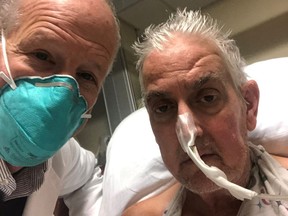Leaning on Animals for Human Longevity
"It was either die or do this transplant.""I want to live. I know it's a shot in the dark, but it's my last choice.""I look forward [post=transplant recovery] to getting out of bed."David Bennett, 57, heart transplant recipient, University of Maryland Medical Center, Baltimore"You need to humanize a porcine heart. Which means it's a half-pig, half-human heart.""You don't want a one-kilogram heart in your chest -- you'd die. You need to mitigate growth, my team found that out.""So you need small pigs [weighing between70 and 90 kg, not 300kg types]."Professor Bruno Reichart, heart transplant surgeon, Germany"[In the] infancy [of organ transplant surgery], Back then, it was the dream of every transplant surgeon, myself included, to achieve xenotransplantation [transplanting of animal cells, tissues or organs into humans].""It is now personally gratifying to me to see this long-sought goal clearly in view."Bruce Jarrell, transplant surgeon, president, University of Maryland, Baltimore
 |
There
is always a first in medical science and technology, and this one, the
transplantation of a genetically modified pig heart into the chest of a
man whom surgeons deemed not qualified to go to the top of the
exhaustively long list of heart patients awaiting scarce heart
transplants in the United States, has had the opportunity to have his
name listed in the annals of medical history.
At
57 years of age, David Bennett has become the first person in the world
to successfully undergo a transplanted heart surgery using a pig heart.
This specially approved experimental surgery is expected to have
wide-ranging ramifications in medical science, one that will in time
save thousands of lives waiting for organs to enable them to go on
living when their own have reached the end of useful
organ-life-expectancy.
At
the very hospital where this xenotransplantation took place, doctors
there and at other hospitals decided that this man was ineligible for a
human heart transplant, in review of his medical records. The
experimental surgery was his "only option for survival".
And mere days following the surgery, deemed a success, doctors are
following his progress carefully in his immediate recovery days. Hoping,
needless to say, that they will never have to say 'the operation was a
success, but the patient failed to survive'.
The emergency authorization by the U.S Food and Drug administration set the surgery in motion on New Year's Eve, granting "compassionate use",
a provision allowing experimental products used outside of clinical
trials where a patient's condition is sufficiently serious or
life-threatening and no alternate options exist. As was the case for
David Bennett with his terminal heart disease.
Mr.
Bennett's condition was so dire that he had been months hospitalized,
bedridden with arrhythmia -- irregular heartbeat -- connected to
machinery that kept him alive. On the morning of the surgery surgeons
extracted the modified pig heart from the device in which it had been
preserved for the purpose of the transplant. "It's now nestled in its little preservation chamber waiting for our call to action", explained surgeon Bartley Griffith, who performed the transplant, in the video taken of the procedure.
 |
| "We've never done this before" said Dr.Bartley Griffith, the surgeon who successfully transplanted a pig heart into a patient who said the cardiac team has prepared for David Bennett, Jr.'s body to put up a fight against the foreign organ. |
Pig
skin and heart valves in some ways biologically similar to those of
humans and primates, have been used as ideal candidates for transplants
into humans in past years. Modifications to remove a type of virus in
pig cells that have the potential to infect human cells prevented full
organ transplants to the present, but in 2015 researchers used a gene
editing technique called CRISPR to remove the virus from the pig cells' DNA, making them suitable theoretically for transplantation.
Dr.Griffiths noted that doctors at the hospital in monitoring Mr. Bennett's recovery, were "proceeding cautiously",
even while pleased with his condition in the days following this
medical-world-shattering initial event that will ultimately change the
landscape of human transplants and the potential for extending human
life through organ renewals, giving people on the verge of death a new
lease on life.
 |
| In
a medical first, surgeons successfully transplanted a genetically
modified pig’s heart into a U.S. man in a last effort to save his life. Still from video |
Labels: CRISPR, Medical Science, Modified Pig Heart, Xenotransplantation

<< Home